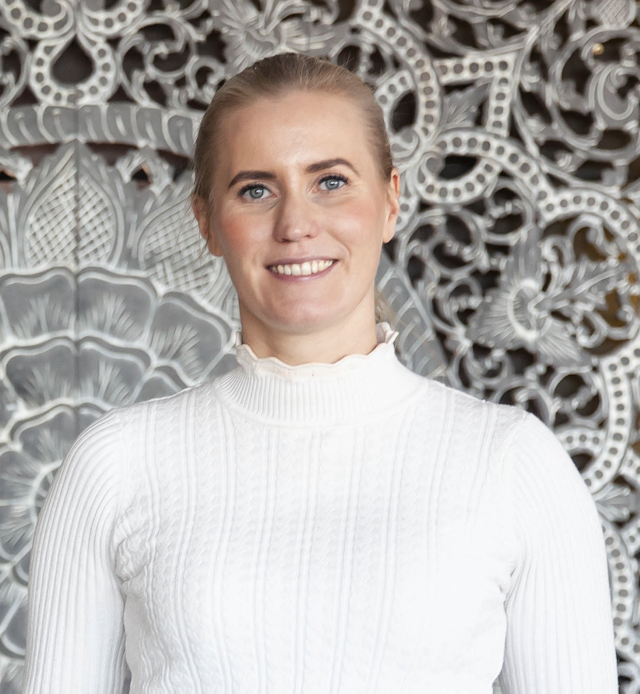What do women in tech say about being a woman in tech?
The tech industry is stuck in the past.

Izzy Bishop is Making Waves podcast host and associate at Wiser Elite
It’s no news that the tech industry has a gender diversity problem. Let’s take a glance at some of the headlines:
-
Of the 2.9m people employed in the UK’s tech industry each year, only 17% percent are women.
-
Only 5% of leadership positions in tech are held by women.
-
In 2019, 52% of women in tech said they had experienced gender discrimination in the workplace.
I’ve made it my mission to dig deep and learn from the women who really ‘Make Waves’ in the tech industry through producing a podcast dedicated to WiT.
We need to help women succeed in a (very) male-dominated industry. I’ve compiled my favourite lessons and insights from my podcast interviewees – the UK’s most inspiring female tech leaders.
Why me?
I must admit, until I started working at Wiser I didn’t know much, if anything, about the tech industry. It wasn’t until I started my journey into recruitment (and a lot of LinkedIn stalking) that I knew about the lack of women who had leadership roles in the tech industry.
Before being immersed into the world of SaaS, BI, cybersecurity and much more, I worked as a radio presenter.
So with the amidst furlough – ie completing Netflix and baking banana bread under the sun – I had a lightbulb moment: to synergise my radio presenting past and recruitment knowledge to create a stage for female leaders in tech.
Enter ‘Making Waves’ – a podcast that gives the female leaders of tech a space to tell their stories and share their best career advice.
Here are seven key takeaways so far from my one-to-one interviews with some of the most powerful women in the UK tech industry.
Don’t be afraid to ask for help

Patricia Keating, executive director at Tech Manchester
“People generally are good people and will even take value from the fact that you’re asking them for help and that you recognise and value their expertise.”
Essentially, everyone loves a good ego rub and you won’t get help unless you ask for it… what’s the worst that can happen?
Being inquisitive is a good thing, it shows you care and are willing and wanting to learn. Nine times out of 10, someone else will be thinking that same question, so as the saying goes, “there’s no such thing as a stupid question.”
Bring your whole self to work

The idea of crying in front of your boss, having puffy eyes and a snotty nose, might give you shivers, but we are human.
Homewood opened up about breaking down at work after not receiving the promotion she had worked hard for – and deserved.
“It's okay to have a breakdown at work, it’s okay and normal that we have bad days, and we should bring our whole selves to work.”
You shouldn’t be afraid to show that emotion or feel the pressure of putting on a ‘corporate face’ – showing emotion should not be seen as being weak.
Networking is key

Imogen Aaronson, founder and director of Imo-Gine
Networking is daunting, I know.
But Imogen (at the age of 27 might I add) stands by the importance of opening yourself up to a room full of people you don’t know (even if that room might be virtual).
“We are all so used to hiding behind our phones and have almost lost the ability to interact with people face to face. If you walk into that room, you have won half the battle and should celebrate the small wins.”
Remember – “all progress takes place outside the comfort zone”.
I’ll happily take a leaf out of Imogen’s book given her entrepreneurial success in the tech industry.
Systemic racism in the workplace is a thing

Louisa Gregory, chief executive officer of CBAN and chief of staff at Colt Technology Services
Louisa is praised by her friends for being the epitome of ‘if you work hard, you become successful’.
Her response: “Yes, I’ve worked hard, but if I was born an indigenous Australian I would not have had the same opportunities.”
During the Black Lives Matter movement of 2020, we saw a burst of education online around racism and history that was absent before. Now that the conversation has been sparked, it’s important to face up to the fact that systemic racism is still very much occurring across multiple industries, including tech.
My favourite quote from Louisa is: “We can’t expect black people to fix the problem of racism, the same as we can’t expect women to fix the gender problem.”
Hearing such genuine words from someone in power hinted at hope for the future – but this is a big issue that everyone needs to wake up to.
Do a job that will make you truly happy
“If you’re not bouncing out of bed every morning, then I would really question, where is the joy in your life coming from?” Louisa also pushed for the importance of finding joy in your job.
She said that everyone needs to think about what badge that job will give you and ask yourself the following questions:
-
What’s the purpose?
-
Will it enrich your learning in something you are lacking?
It’s important to remember that you do not always need to make an upwards move (as mentioned in the book The Squiggly Career by Helen Tupper and Sarah Ellis), not all careers are linear nowadays – you can make sideways and backwards moves to reach your longterm goals. Just make sure that within your role you’re able to further your skills to reach targets, and that most importantly, you enjoy it.
You can have a successful career, and a family

Are companies doing enough for mothers? Do women have to choose between having a family and a successful career?
Catherine put my mind at ease during our conversation. She talked about her experience of being both a leader and a mother (although it didn’t sound easy), and said: “We should not let our careers decide for us whether we have a family or not.”
Flexible working is slowly becoming more acceptable due to the current pandemic. Catherine pointed out: “If you have a really good employee who needs some flexibility, you just give it to them, because what difference does it make? The job gets done.”
So, don’t be afraid to ask your employer for a different working model if it means both your professional and personal life will significantly improve as a result.
Get comfortable with change

You are always attached to your company and your idea.
Of course, it’s hard to take a step back and think, “is this really working?” but this is an important exercise, and something Lu had to do.
Lu took a complete U-turn in her career this year. The pandemic rendered her business proposition for an events networking company for female entrepreneurs impossible.
She admitted the most dangerous thing for entrepreneurs is “to be stuck in a position where it's kind of working, it's not working great, but it's not horrendous.”
It becomes hard to let go, because you are constantly hunting for that gold, thinking that you are on the edge of success.
So when do you move on?
Ultimately, if you are having that debate with yourself, it’s a sign that it is probably time for a change. Otherwise you could sit on that one idea for years and lose opportunities. Lean in to your constraints, learn to adapt and welcome conflict. Great things will come from adopting a challenger mindset.
Feeling inspired? Listen to the Making Waves podcast to hear more from these powerful women in tech.
Izzy Bishop is Making Waves podcast host and associate at Wiser Elite.
Content by The Drum Network member:

Wiser
Wiser is an award-winning creative & recruitment company combining culture and performance to change the way people think about work.It's a home for people who...
Find out more
